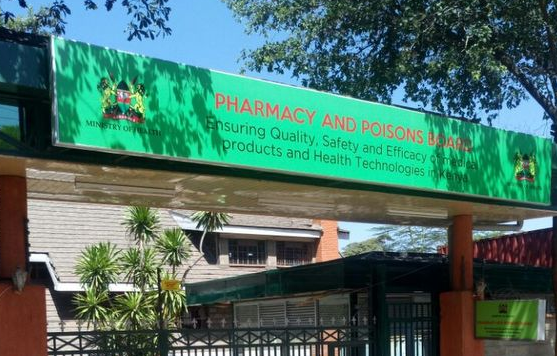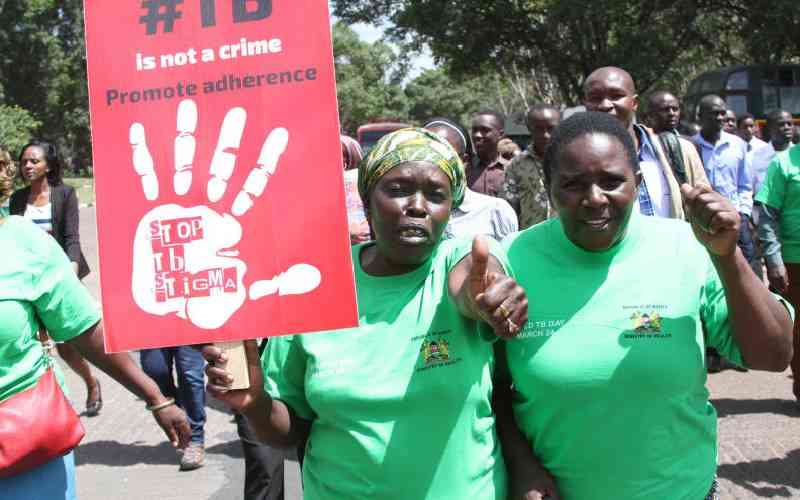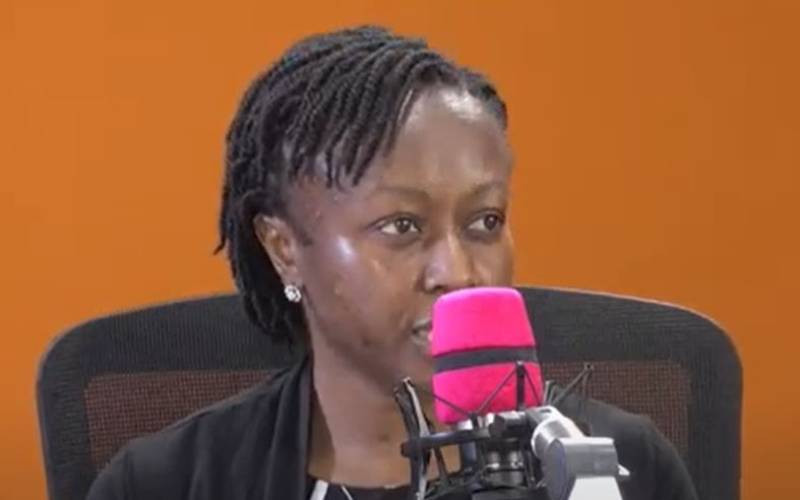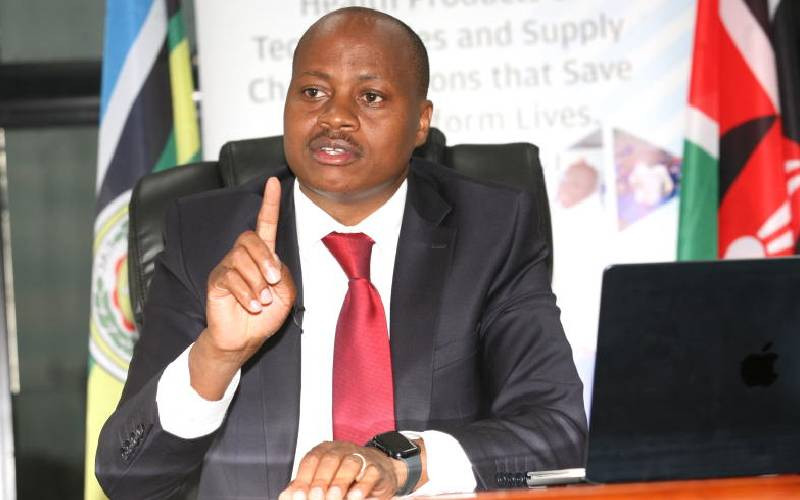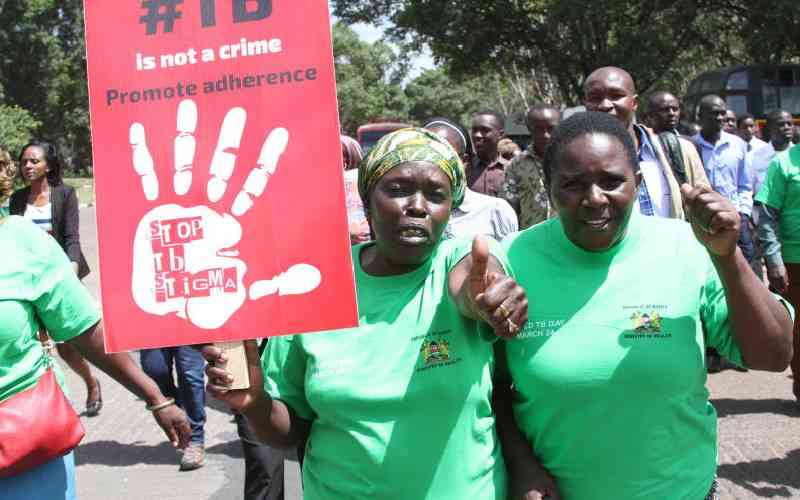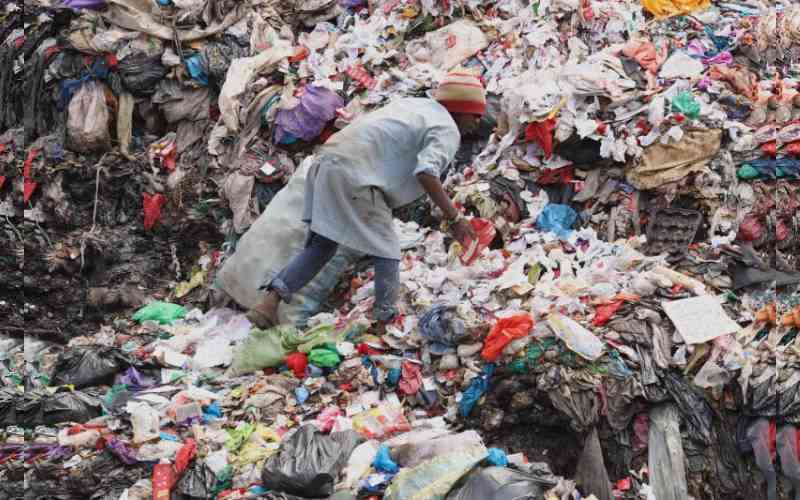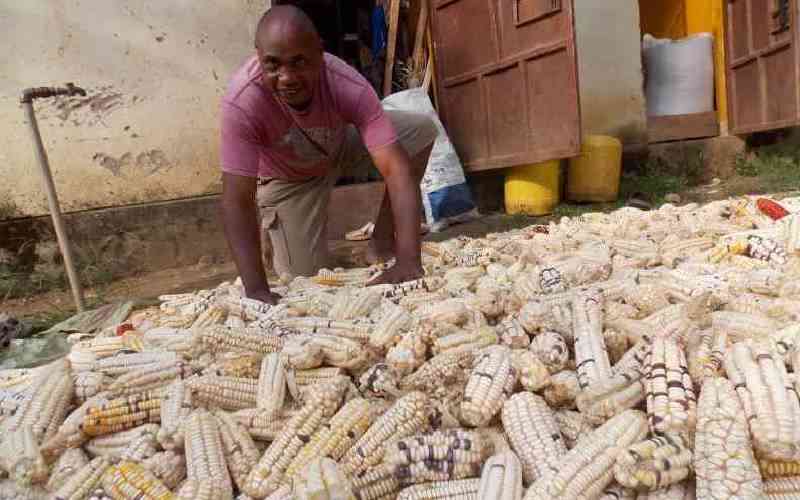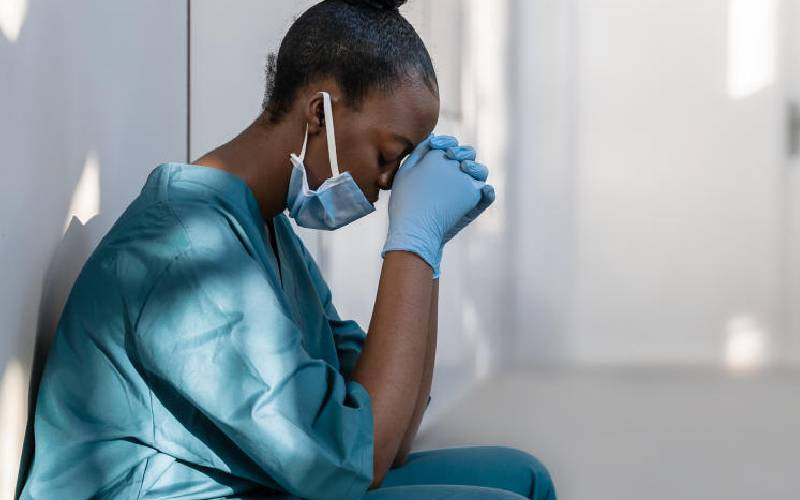
Just like their patients, doctors are also not immune to mental stress, worry and attendant burnout, depression and post-traumatic stress disorders.
Dr Yubrine Moraa, an internal medicine consultant and health advocate says the pandemic was one period that tested medics. In her case, she had to seek help for trauma after "trying to be a soldier" ran its human limits and she lists "long working hours and watching colleagues succumbing" as some sources of anxiety and panic especially when she experienced symptoms similar to Covid-19.
"I would sit down and cry wondering if I was next yet everyone expected me to just show up and be there," recalls Dr Moraa. "There are those mornings when my body would not even move."
Her family life was also affected as "my children could not run before and hug me. They knew mummy had to clean up and I knew they were missing out on maternal love."
Something else she struggled with was "the stigma against them by our neighbors because their mother is a doctor and could be the one spreading the disease to them."
Dr Moraa sought help when she realized she was snapping at the slightest provocation and she advises her colleagues to always be self-aware and to open up especially debriefing after handling traumatizing cases.
"We are only human, the perception out there is we chose this career because we are made of steel, there is that expectation that we don't get affected, people should not think we have any superpowers, we are just ordinary people doing an extraordinary job," she said.
- Nakhumicha calls for review of doctors CBA as strike bites
- Clinical officers begin strike as crisis in health sector worsens
- Clinical officers are first point of call for patients
- Ruto remains mute as healthcare crisis worsens
Keep Reading
Then there are situations when a doctor is not easily understood by society while undergoing treatment. Like Dr Patrick Boruet, a pharmacist, who was diagnosed with bipolar disorder in 2011. He has been on medication since with occasional adherence challenges.
He recalls his boss wondering why he was taking too many sick-offs every time he had to travel to Nairobi for a doctor's appointment.
"When you are bipolar, you lose some friends, not because they won't accept you but because maybe you have gone through a relapse, and you do something you regret, so it dents your confidence," said Dr Boruet whose life had a turn-around in 2015 after relapsing and doing things that caused trouble at his workplace and family.
He formed the Bipolar Heroes Foundation to offer support and "even newly diagnosed people can join and learn about challenges as some medications cause bad side effects, and one needs support."
"We need to understand that bipolar can be managed, it can affect anyone, speak out because there is hope, accept to be vulnerable," said Dr Boruet urging the government to equip public health facilities with medication in their essential medicine list especially those in the second generation as the first generation have been causing more side effects.
Dr Davji Atellah, the General Secretary of the Kenya Medical Practitioners, Pharmacists and Dentists' Union (KMPDU), says doctors are human and he pegs financial constraints as major cause of mental stress especially after Devolution resulted in delayed salaries leading to medics being blacklisted on CRB over unpaid loans.
Dr Atellah adds that long working hours due to shortage of workers and medics with underlying conditions only worsens the situation such that some have reached mental breaking point and opted for suicide.
Dr Davji also argues that some medics go through trauma after performing delicate surgeries and losing patients, especially when they feel that death was preventable.
Lack of proper equipment and drugs weighs them down too and "The Union has a committee dealing with doctors' welfare which is pushing to do away with stigma regarding the mental health of the doctors that gives them psychosocial support and helping them find safe spaces where they can open up."
 The Standard Group Plc is a multi-media organization with investments in media platforms spanning newspaper print
operations, television, radio broadcasting, digital and online services. The Standard Group is recognized as a
leading multi-media house in Kenya with a key influence in matters of national and international interest.
The Standard Group Plc is a multi-media organization with investments in media platforms spanning newspaper print
operations, television, radio broadcasting, digital and online services. The Standard Group is recognized as a
leading multi-media house in Kenya with a key influence in matters of national and international interest.

